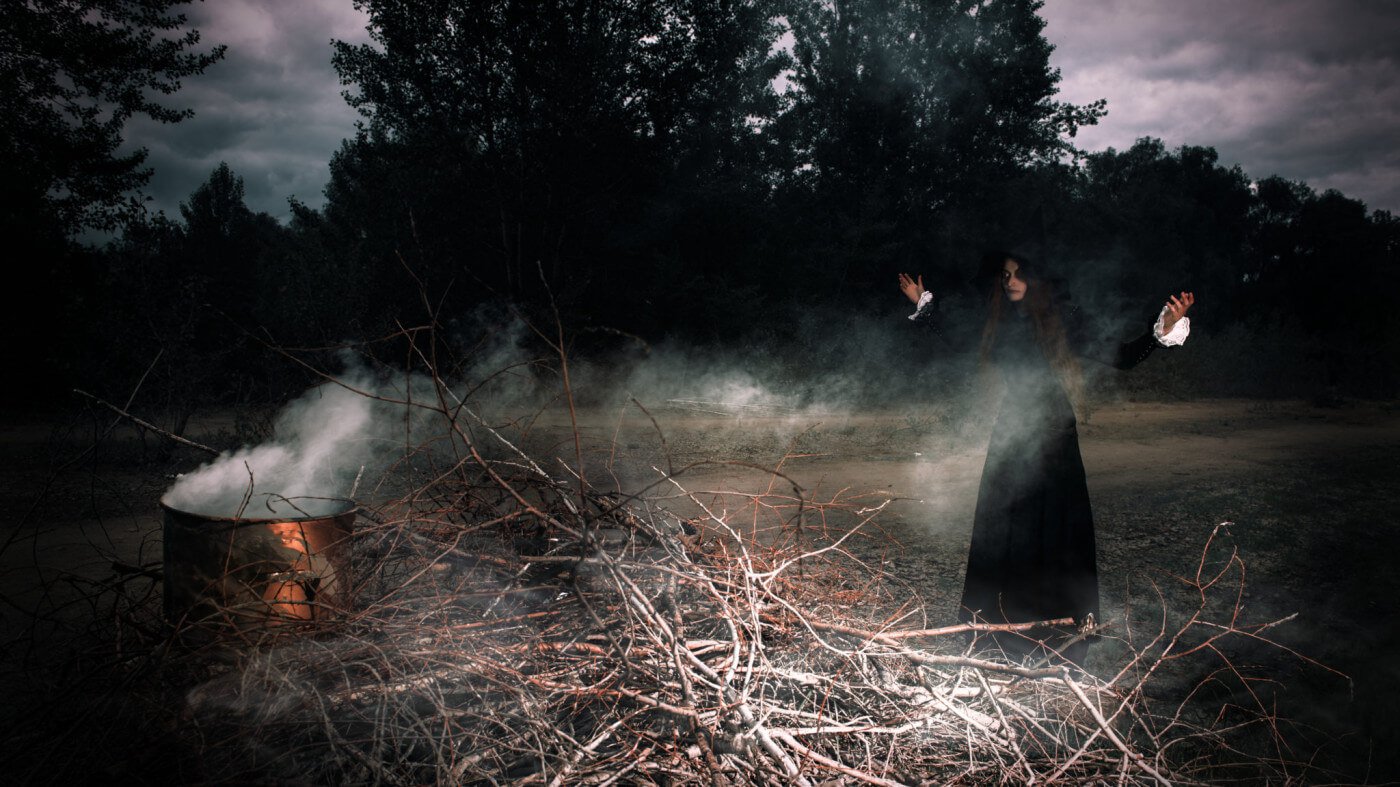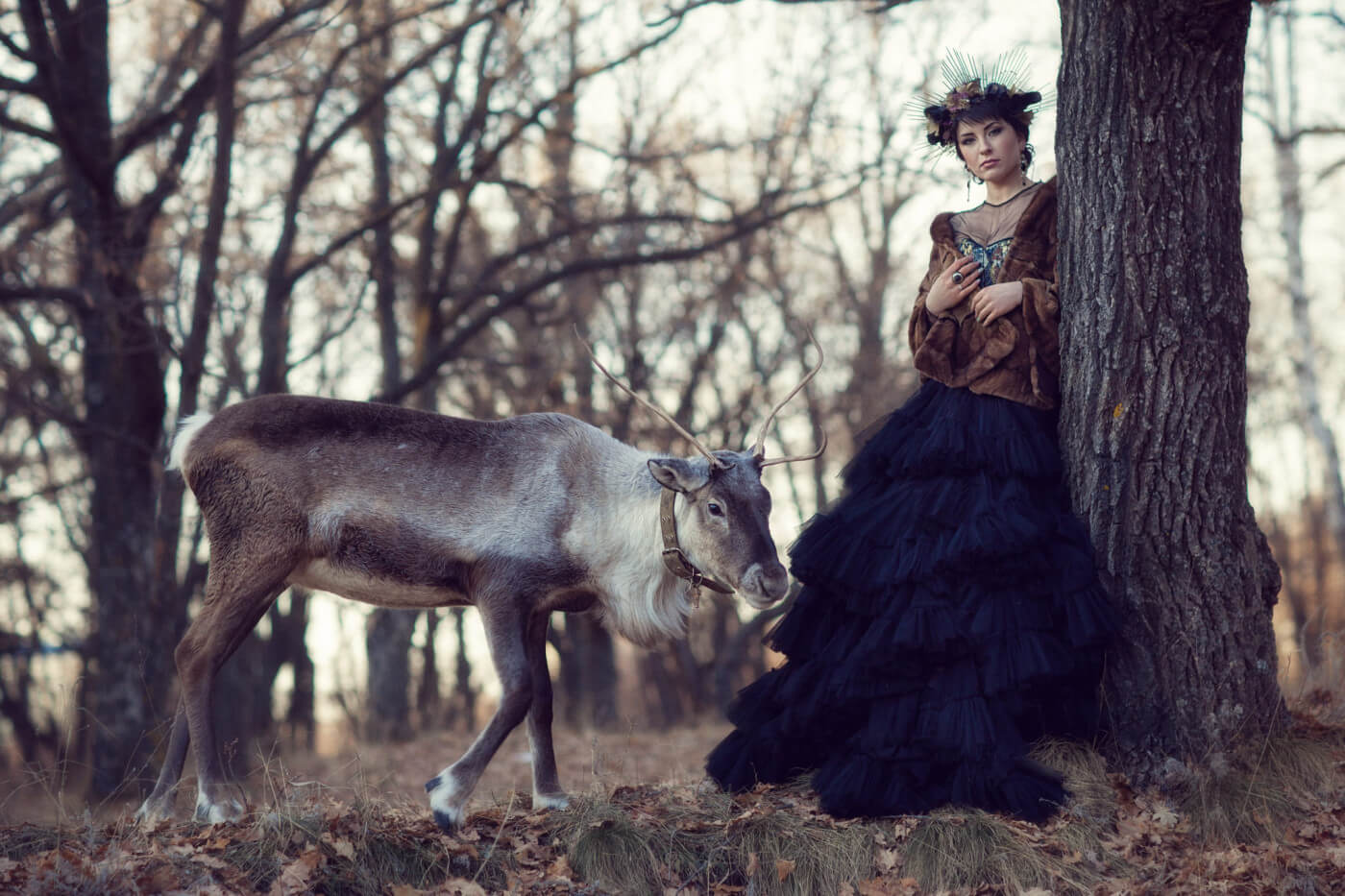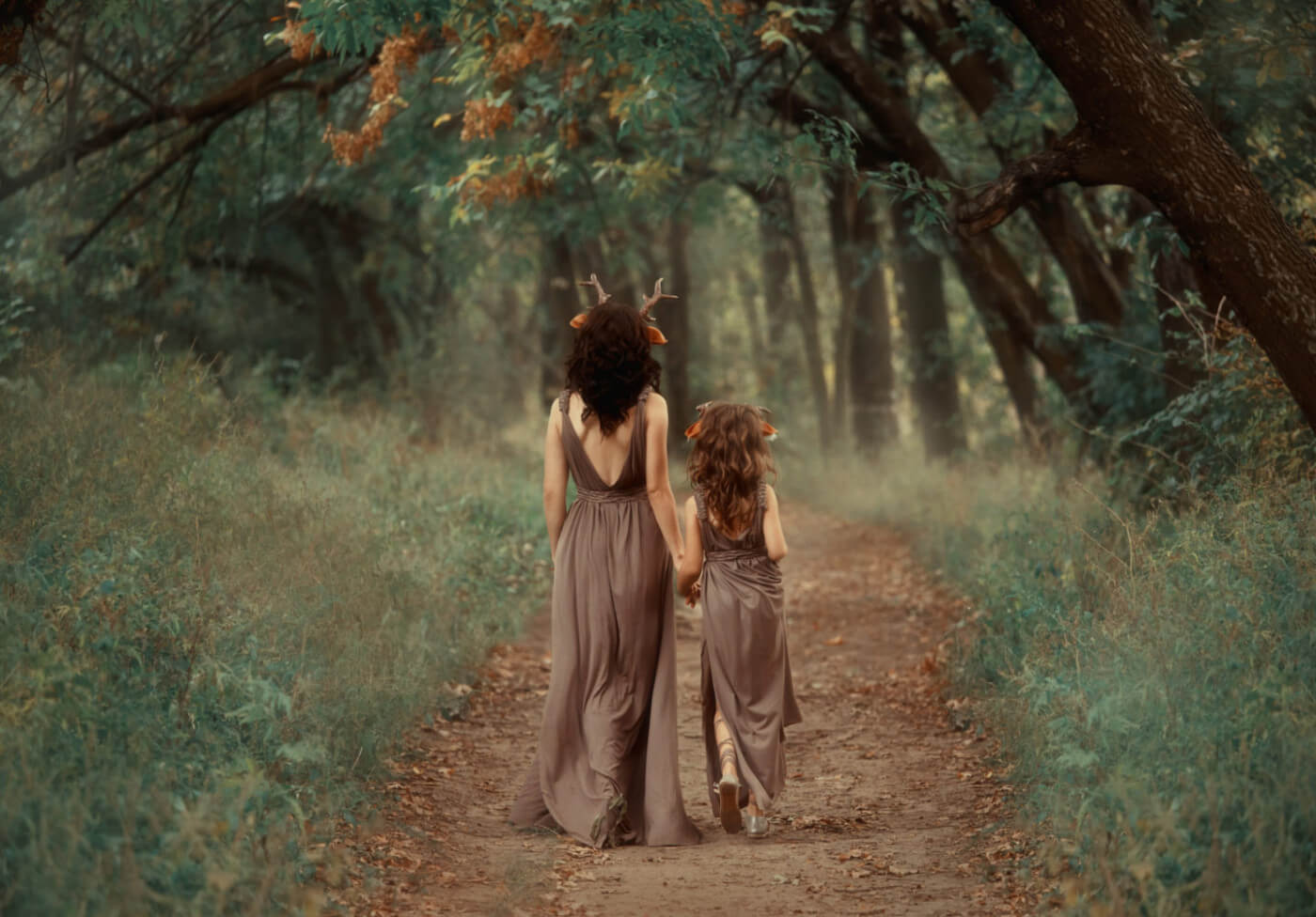If our home is an altar, the hearth is its beating heart. It’s the anchor, the womb, and the most magickal room in any house. Look around and notice the roaring fire, the cauldron, and the fragrant herbs bubbling within.
But who is it that stirs the pot? Who stokes the coals?
For that, we turn to the Hearth Witches, the Kitchen Crones, and the domestic goddesses who transform fire to fuel. We look to the timeless spirits who, for generations, have tended to the literal and metaphorical embers that feed our creativity, body, and home.
So if you long to know that magickal being who stands over the cauldron and whispers secrets into the brew, read on to learn about our favorite Hearth Witches—the ones who embody the eternal flame.
Hestia: Greek Goddess of the Hearth
Hestia does not represent the hearth; she is the hearth. She personifies fire, heat, and light—the things that nourish us, especially during the dark half of the year.
In Greek mythology, Hestia is one of the twelve original Olympians. She is the eldest daughter of Rhea and Cronus and sister to Zeus and Demeter. Since Hestia was tasked with caring for the hearth fire in her own home, she spent most of her life indoors. Even though she is not as well-known as her siblings, as the Goddess of Hearth and Home, Hestia was honored before and after each meal. In the old-world, whether someone had concerns over domestic life, familial friction, or just wanted to get the goddess’s attention, they could offer her a goblet of wine and the largest slice of whatever lay on their table.
Although Hestia is considered a goddess of few words, Aristotle insisted that anytime our fireplace pops, hisses, or crackles, the goddess is speaking.
Strega Nona: The Italian Kitchen Witch
The Kitchen Witch cooks, bakes, and brews. She is resourceful and imaginative, known to cast spells with a pinch of this, a bit of that, and whatever ingredients she has on hand. As an archetype, the Kitchen Witch appears in folklore and pop culture. She is Hilda Spellman, Cerridwen, and everyone’s favorite neighborhood Witch, Strega Nona.
The Hearth Witch has much in common with the Kitchen Witch. They both know that nurturing our inner spark is a form of self-realization and that making food is a sacred act. Kitchen Witchery is not a craft reserved for the few, but as Tomie dePaola shows us in his 1975 book, Strega Nona: An Original Tale of an Old Tale, practice makes perfect.
In the story, when Big Anthony overhears Strega Nona’s spell to fill her pasta pot, he becomes excited and can’t wait to try his luck with kitchen magick. However, Big Anthony doesn’t realize that he’s overlooked a crucial step. Since he never saw Strega Nona blow three kisses into the cauldron to end the spell, the town quickly becomes buried in pasta. But while the townsfolk seek harsh punishment for Big Anthony’s mistake, Strega Nona decides that so long as he eats every last bite of pasta, all is forgiven.
Stega Nona is known for kindness, her never-ending cauldron of pasta, and for helping her neighbors. Yet, despite her good deeds, Strega Nona’s story has been listed alongside other banned and challenged books for years.
Brigid: Keeper of the Sacred Flame
According to Celtic myth, Brighid (also known as Bride) carries a flame in the palm of her hand. As the goddess of poetry and ruler of the forge, Brighid is said to spark and maintain our creative fires. Her endless flame has the power to purify and heal, and her role as a Triple Goddess ensures that transformation is one of her many gifts.
Brighid’s nickname is the Flame of Ireland. Legend says that she was born at sunrise, with a beam of light radiating from her head into the heavens. For many generations (up until the 18th century), her shrine at Kildare and its eternal flame was tended to by nineteen priestesses. As the Keeper of the Sacred Flame, we embody Brighid by stoking and smooring our hearth fire. Maintaining a long-lasting flame (even if it’s only a lit candle) is a form of quiet devotion. It’s also a way to honor the people who’ve dedicated their lives to protecting the home.
Baba Yaga: The Hungry Trickster
While not a Hearth Witch in the traditional sense, this Slavic grandmother knows a thing or two about making magick with fire, filling her cauldron, and ensuring that her home is warm and inviting.
However, with Baba Yaga, there’s a catch.
Instead of feeding you, she might be eating you. But that’s only if you can’t solve a handful of riddles or complete a few near-impossible requests. Because if you’re able to keep your promises to Baba Yaga, she’ll keep hers.
In the folktale Vasilisa the Wise, Baba Yaga gives the gift of fire to a young girl after she completes a series of improbable tasks. What Baba Yaga doesn’t know is that Vasilisa’s success is partly because of an enchanted doll (a symbol of her intuition) that she carries in her pocket. So, after she finishes the chores and receives Baba Yaga’s blessing, Vasilisa is free to leave. With a flaming skull in hand, she returns home and relights the hearth. While the girl warms herself and reflects on her journey, her evil stepmother and stepsister mysteriously catch fire and turn to ash.
So, even if the lights are on and smoke billows from her chimney—think long and hard about entering Baba Yaga’s hut. And if she extends an invitation, let your intuition respond.
Ancestors: Household Guardians
Perhaps the most available yet overlooked Hearth Witches are the ones we call family. Our ties to them might be biological if they’re our ancestors, or adoptive if we’re thinking of the friends, mentors, and caretakers that kept us warm and fed. And that’s not to say we have to come from a line of Witches to honor our familial guardians. Next time the outside temperatures drop and we find ourselves stirring the cauldron and stoking the flames, all we need do is add the secret ingredient—a blessing for the Hearth Goddesses of past and present.










